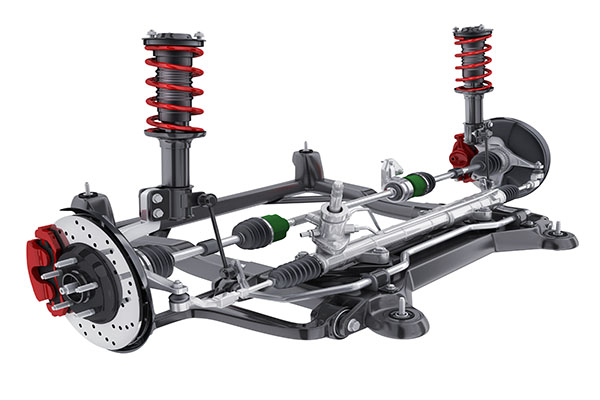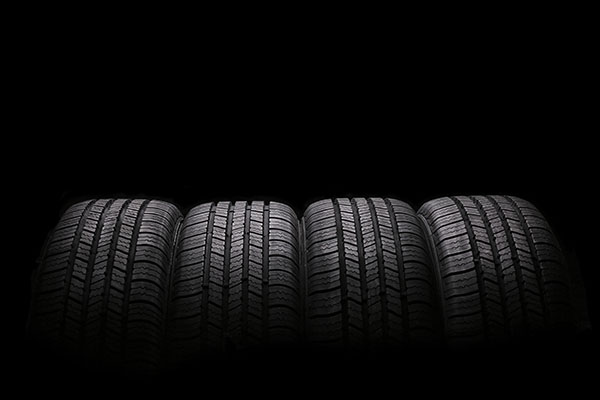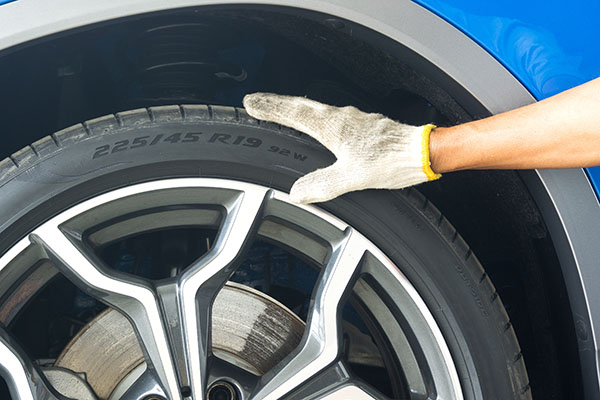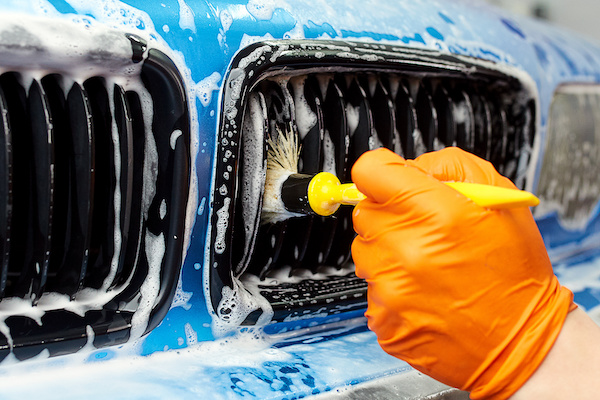Posted on 6/30/2023

When it comes to vehicle suspension, there are various options available, each offering unique advantages and characteristics. Let's take a closer look at the differences between air suspension and conventional suspension systems, highlighting their respective benefits and helping you understand which option might be the best fit for your needs. Air Suspension Air suspension is a system that replaces traditional coil springs with airbags, which are inflated with compressed air to support the vehicle's weight. This adjustable suspension system offers several advantages: Smooth Ride Quality: Air suspension provides a superior ride quality by absorbing bumps and road irregularities more effectively than conventional suspension systems. The adjustable nature of air suspension allows for customization, enabling drivers to select their desired level of comfort and performance. Adjustable Ride Height: One o ... read more
Posted on 5/31/2023

Wheel size is a hot topic in the automotive world, as many drivers choose to customize their wheels and tires for aesthetic or performance reasons. But how does wheel size affect the vehicle’s performance, handling, fuel economy, and safety? In this blog post, we will explore some of the advantages and disadvantages of different wheel sizes and how to choose the best one for your vehicle. Wheel Size and Performance The effect that wheel size has on the overall performance of a vehicle is quite big. Larger wheels typically increase unsprung weight, while smaller wheels decrease it. This can influence acceleration, handling, and braking performance. Larger wheels need more power to roll because of their increased surface area. This can reduce the vehicle’s responsiveness and agility, especially in stop-and-go traffic or on hilly roads. They also affect the vehicle's aerodynamics negatively. On the other hand, smaller wheels need less power from the en ... read more
Posted on 4/29/2023

Regularly checking your tire tread wear is an essential part of maintaining safe and reliable vehicle performance. The condition of your tires affects your vehicle's traction, handling, and braking capabilities, making it crucial to monitor their tread depth. In this blog post, we'll provide you with a step-by-step guide on how to check tire tread wear effectively. Tools you will need: Tire tread depth gauge - a small tool specifically designed for this purpose If you don't have a tread depth gauge: Use a penny as a substitute (more on that later) 1. Identify the Tread Wear Indicator Bars Tires have tread wear indicators that if you don’t know where they are exactly, you might mistake them for a tread. Usually it is a line that cuts through the width of the wheel - it is popping out of the wheel slightly. 2. Use a Tread Depth Gauge Take the tread depth gauge and insert the me ... read more
Posted on 3/28/2023

As spring rolls in, it's a great time to take care of your car. While getting a car wash is important for maintaining the exterior, it's not the same as detailing. If you want to know the differences between a car wash and detailing and how these cleaning methods can benefit you this spring, keep on reading. Car Wash A car wash is a quick way to clean your car's exterior. You can either do it yourself with a hose and soap or take it to a drive-through car wash. Car washes are effective at removing dirt and grime, but they don't do much to protect your car's paint. Detailing Detailing is a more comprehensive process than a car wash. It involves cleaning and restoring both the interior and exterior of your car. A professional shop will use specialized tools and products to clean every inch of your car, from the wheels to the windows. The Exterior Detailing the exterior of your car involves a three-step process: washing, polishing, and waxing. Washing: De ... read more
Posted on 2/27/2023
.jpeg)
In simple terms, no, we do not recommend driving with the engine oil light on. When this dashboard light comes up, it's a tell-tale sign that something is very wrong from within your vehicle. When the oil warning light comes on, it generally means that your vehicle has low oil pressure. The reduction in oil pressure could result from a few things: you are low on oil, your oil is heavily contaminated, or you have an oil leak. Thankfully, you can come close to a conclusion by simply checking your oil. To check your oil, follow the following steps: With your car parked on an even surface, pop your hood and find the oil dipstick (usually yellow). Remove the dipstick and clean it off using a rag. Put the dipstick back in and pull it out again to get a more accurate reading. If the oil on the end of the dipstick is at or below the indicated marks, then it's time to bring your car into our shop for an oil change. Even though your vehicle doesn't burn through ... read more